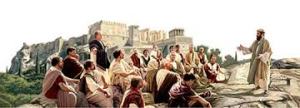Introspection is a necessary action and it should be used as often as necessary.
When you take something from around you and analyze it, and then you take it within your mind and heart and thoughtfully consider the implications to self. How you emotionally feel and think about the situation? What are the implications of your feelings? How do you relate?
Last night we spent time at church with some challenging words and thoughts to inspire us to grow and become what we are destined to be. Afterward, I spent quiet moments in retrospection, and then this morning in introspection. Am I personally up to it? What is the impact? Our next steps are….? Who will join me in the effort? Who will not? What will be the final results? Can we, should we?
We all need moments to think of ourselves about the impact of what is happening to us. Either you make the time available, or you allow the moment to wisp away as the wind blows and dissipates the smoke.
 One morning, while walking the dogs, I came across a very fragile thing lying at my feet. A wasp nest, on the ground, in the dirt, near an apple tree. Gently, I picked it up and cupped it in my hands lest the wind blow it away. While the dogs romped through the bushes and trees hoping to scare up a rabbit, this wasp nest made me think about how fragile life is, and how terrible the loss when that place of birth and nourishment falls to the wayside.
One morning, while walking the dogs, I came across a very fragile thing lying at my feet. A wasp nest, on the ground, in the dirt, near an apple tree. Gently, I picked it up and cupped it in my hands lest the wind blow it away. While the dogs romped through the bushes and trees hoping to scare up a rabbit, this wasp nest made me think about how fragile life is, and how terrible the loss when that place of birth and nourishment falls to the wayside.
Whether by the destructive power of nature or by the abandonment of the owner, this house which would hold future generations was laid to waste. Tossed aside. Not worth anything, and never to be used again.
I compared it to life in general, and how we often waste our existence, never to be productive or useful to ourselves or future generations. Life is fragile and sometimes we choose to care for it like a mother hen gathering her brood around her to be protected under her wings. Sometimes we simply waste the opportunity.
Then I compared this wasp nest to the church as a whole, and specifically to the one I pastor. There are parallels. Sometimes we make the church about the building and, though not bad, it becomes the driving force of the people. Yes. We need a place of worship and instruction, a beacon in our city, a nourishing place to train and disperse future generations. But more importantly than the building that can be torn down and discarded easily, we need to focus on the people.
 Remember that old hand puzzle?
Remember that old hand puzzle?
Here’s the church, here’s the steeple, open the doors, where are the people? (Your fingers are wrapped around the top of each other and form the roof.)
Here’s the church, here’s the steeple, open the doors, here are all the people. (This time your fingers are laced under and when opened they are inside the building. You wiggle them around to show the people in the church.)
Less we misunderstand the reference, it’s not about the people being inside the church, or not there at all. To me, the puzzle is all about the people themselves. Whether in or out, the focus is about the people and not the building.
Do we need a building? Yes. Do we want to invest in one? Yes. What comes first, the chicken or the egg? The people or the building?
As is normal, we find some that buy into the concept of investing in people, and some only want to be the recipients of the investment, while others just want to sit and do nothing.
“There is little you can learn from doing nothing.” ~Zig Ziglar
There are two co-missions given to the church. Do you know them? Can you recite them without even thinking? Can you articulate them? Could you explain them to a stranger? A friend? And as we heard last night, if you were pricked with a pin, could you bleed the co-mission?
And Jesus came and spoke to them, saying, “All authority has been given to Me in heaven and on earth. Go therefore and make disciples of all the nations, baptizing them in the name of the Father and of the Son and of the Holy Spirit, teaching them to observe all things that I have commanded you; and lo, I am with you always, even to the end of the age.” Amen. (Matthew 28:18-20 NKJV)
But you shall receive power when the Holy Spirit has come upon you, and you shall be witnesses to Me in Jerusalem, and in all Judea and Samaria, and to the end of the earth.” (Acts 1:8 NKJV)
Nowhere did Jesus tell us to “build a church”. Especially when the concept is the building alone. Long before they had centers of worship, the early “church” was totally invested in reaching people. Besides, it was Jesus himself who said he would build his church and the gates of hell would not be able to stand up to it. (Matthew 16:18)
We’ve turned the church into an experience that hardly seems capable of existing without a building, creature comforts and all those wonderful technology gadgets we’ve grown accustomed to having near. Consider that Jesus did most of his teaching and miracles away from the temples of his day. On the hillside, at the shores, in the houses, streets, and marketplaces. This does not mean he stayed away from his obligation to their sacred house of worship and instruction! Only, he took what he had and used it everywhere he went.
I’ve stood on the hillside and looked down toward the Sea of Galilee and imagined Jesus speaking to the natural amphitheater of people who had gathered to learn more about his teachings and life. He was like no other Rabbi (John 3:2). People were amazed at his command of the law, his examples (parables) of teaching, his ability to heal, and the idea that he would speak truth into every situation. Jesus did not do this around the altar at church… No. He did this in the byways, alongside the trails, in the marketplace, in homes and anywhere there was an opportunity to reach his mission field.
And what did we do with this location?
Built a church building and
made it sacred and holy and
a place to put on our tourist journey in
the homeland of Israel.
 The Apostle Paul and most of the disciples expanded teaching style of Jesus by taking it outside the city, through the countryside, and into other countries. The spread of the church was not geared toward the “building”! It was always about the people. Paul reached into the marketplace, others place of worship, in houses, on the streets, while imprisoned, shipwrecked, and everywhere he went! In fact, he even references the saints that are living close to the world’s influence! Specifically, children of God who have no choice but to live within the framework of the very influence who had the power to destroy them!
The Apostle Paul and most of the disciples expanded teaching style of Jesus by taking it outside the city, through the countryside, and into other countries. The spread of the church was not geared toward the “building”! It was always about the people. Paul reached into the marketplace, others place of worship, in houses, on the streets, while imprisoned, shipwrecked, and everywhere he went! In fact, he even references the saints that are living close to the world’s influence! Specifically, children of God who have no choice but to live within the framework of the very influence who had the power to destroy them!
All the saints greet you, but especially those who are of Caesar’s household. (Philippians 4:22 NKJV)
Think about it.
Everything we do must be about investing in people – to win them over, show the path of salvation, instruct in examples of Christian living, and commissioning them to continue the words of Christ above.
No one is exempt from this. We have all followed the commisioning steps. But as we have often seen, it’s the newbie in Christ that has the most enthusiastic view of this new found life! We need this similar enthusiasm to infuse our lives to keep the mission alive!
Woven together, fresh followers alongside those who have been around the block a time or two, we continue to grow and reach this world with the good news, the gospel, of Jesus the Christ.
This is the Mission of the Church! It’s all about people, and less about the building. Keep our focus on reaching people, and the building, location and all the other trappings associated with real estate will one day arrive. The resources to manage a location will show up. But if we ever make the mission of the church to be about the building and not the people, then we miss the mark of being called a Disciple of Christ.

